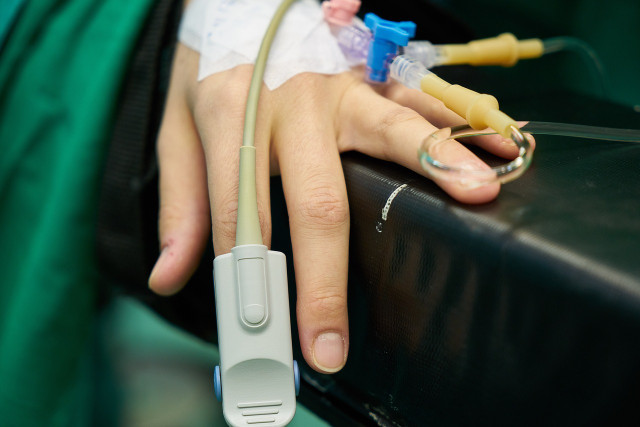Medical gaslighting can lead to misdiagnoses and neglect — and may be more common than you realize. Read on to learn what it is and how to address it.
Medical gaslighting is a tendency for medical professionals to belittle or dismiss the concerns of a patient. It can manifest in different ways, such as symptoms being minimized, doctors not believing patients, or a patient generally not being taken seriously. In the end, it can result in people not receiving proper care or treatment.
Factors that contribute to the reinforcement of medical gaslighting include:
- Discrimination
- Lack of research or understanding of certain conditions
- Limits within the healthcare system such as overworking of healthcare professionals
- Lack of diversity in medical testing and research. Most research in human health, medicine, and biology has been conducted on white men in the US and Europe, as it was historically believed that these findings could be applied to all sexes, genders and ethnicities. This disregarded the fact that hormones, genetics, and a slew of other variables play crucial roles in health and biology. The result is a lack of understanding around the health needs and complications for people of color, women, disabled people, and the LGBTQIA+ community, to name a few. Even when research moves forward, there are still biases: while women may be gaining more representation in clinical trials, for example, black women are still severely underrepresented in many areas.
Medical gaslighting can be easy to ignore or sweep under the rug, because it often takes place in private rooms with only the health care practitioner and patient present.
Who Experiences Medical Gaslighting?



Medical gaslighting can happen to anyone, but marginalized people are disproportonately affected. Women’s pain is brushed aside as being “emotional” and the pain of black patients is often dismissed due to racial bias. Misdiagnoses are thus more common in women and people of color than in white men.
There is a clear reason for this too. Historically, medical-based research has been conducted on cis white men, creating gaps in understanding about patients with different genders, sexes, ethnicities, or sexualities.
Women, transgender and nonbinary people
Multiple studies have found that cis men have long been the focus of medical research, to the detriment of women and other groups. Women’s pain is often diminished and they experience misogynistic biases from medical professionals. Transgender patients suffer discrimination while seeking medical treatment.
People of color
People of color face further biases when being treated, which may prevent them from seeking medical attention when they need to. Black patients are more likely to be given negative descriptions (like “resistant” or “non-compliant”) by medical professionals, and the pain of black patients is frequently dismissed due to biases about pain capacity or inherent strength.
The LGBTQIA+ community
Others who experience higher rates of medical gaslighting include those within the LGBTQIA+ community. The advocacy group Lambda Legal found that more than half of people who identified as gay, lesbian, or bisexual and more than 70% of transgender people had experienced discrimination while seeking health care in a 2014 report.
Other underserved groups
It’s important not to forget other people who are likely to face pushback when seeking medical care. Disabled, overweight, and geriatric patients, as well as patients with mental health issues, are more likely to experience this kind of gaslighting.
Geriatric patients experience higher rates of diagnostic errors and misdiagnoses. This can expose patients to inappropriate treatments, psychological trauma, and financial distress.
Signs of Gaslighting in Medical Care



These are some common signs to look out for if you are concerned about experiencing medical gaslighting. Keep in mind that gaslighting can show up in many forms, and this isn’t an exhaustive list. Pay attention to the following:
- The provider interrupts you, doesn’t seem to be engaged, and won’t allow you to go into detail about your symptoms
- Belittling or diminishing your symptoms
- Refusal to discuss symptoms or dismissal of the possibility of symptoms
- Making you feel foolish or uneducated for suggesting possible explanations or referring to the experiences of peers
- Mentioning race, gender, sexuality, age, weight, or other factors when they are not relevant
- Blaming symptoms on mental health or psychological illness (“it’s all in your head”, for example) without making a plan for mental health diagnosis or treatment
- Not ordering lab work or other examinations to confirm or rule out a diagnosis that may be possible
How to Avoid This Health Care Problem



Although the onus should be on the healthcare provider to avoid medical gaslighting, there are steps you can take to prevent it or act quickly if it happens to you.
Bring support
Bring a support person, such as a trusted companion or relative, to appointments. This is especially important if you feel anxious, have a potentially serious condition, are in pain, or anticipate the medical professional you are meeting with will not speak your desired language.
Take notes
Write detailed notes and records of your symptoms and experiences, including dates, and be as thorough as possible. What are your symptoms? When do you experience them? If you have pain, what does it feel like? Note everything in detail, and also note what your doctor says during your appointments. This way, you can provide specific, helpful information to your healthcare provider as well as offer “proof” of your experience with medical gaslighting.
Ask questions
Ask as many questions as possible. Focus on the most crucial issues, as many health are practitioners are unfortunately pressed for time. It can be helpful to summarize the main and most important concerns you have before the appointment begins.
If you experience resistance from the doctor, don’t be afraid to push back. For example, if a doctor dismisses your pain by saying it is not typical for your condition or it’s “all in your head”, you can ask them how they plan to treat your pain, since while it may not be testable, you are still experiencing it.
Before you leave the appointment, make sure you clarify what the next steps will be. Make sure you understand the doctor’s initial thoughts or prognosis, what has been ruled out, and if you need to plan any follow-up appointments with them or other providers.
Switch providers
If these methods still don’t work, and you’re not getting the treatment or answers you’re looking for, you may need to switch providers. This can be not just emotionally but also financially draining. Alternatively, you can try getting a recommendation from your current provider for another specialist. If you don’t feel comfortable speaking with your doctor, try the patient liaison or nurse manager.
Find a support group
Look for support groups, including those supporting people who have experience with medical gaslighting. These can be found on social media platforms like Reddit and Facebook. It may take some time investigating to find the right support group for you, but it can be greatly valuable to be in touch with people who have had similar experiences and can offer advice. Many of these groups also provide anecdotal evidence that others are experiencing the same symptoms, which can help you feel less alone.
Seek additional support
If you are still struggling, you can always appeal to a higher authority. This can be through the patient advocacy staff at a hospital, the doctor’s supervisor, or even reporting your experiences to the Federation of State Medical Boards.
While these forms of neglect and abuse within healthcare have long existed, we finally have a term for this abusive practice that affects so many people. No matter how discouraged or disenfranchised you might feel due to medical gaslighting, there are resources that exist to assist you and health care professionals that want to change this behavior.
Read more:
- How to Recognize, Expose Counter Whataboutism
- How to Validate Someone’s Feelings
- What Is Rainbow-Washing and Am I Supporting It?
Important Information regarding Health-related Topics.
** Links to retailers marked with ** or underlined orange are partially partner links: If you buy here, you actively support Utopia.org, because we will receive a small part of the sales proceeds. More info.Do you like this post?








